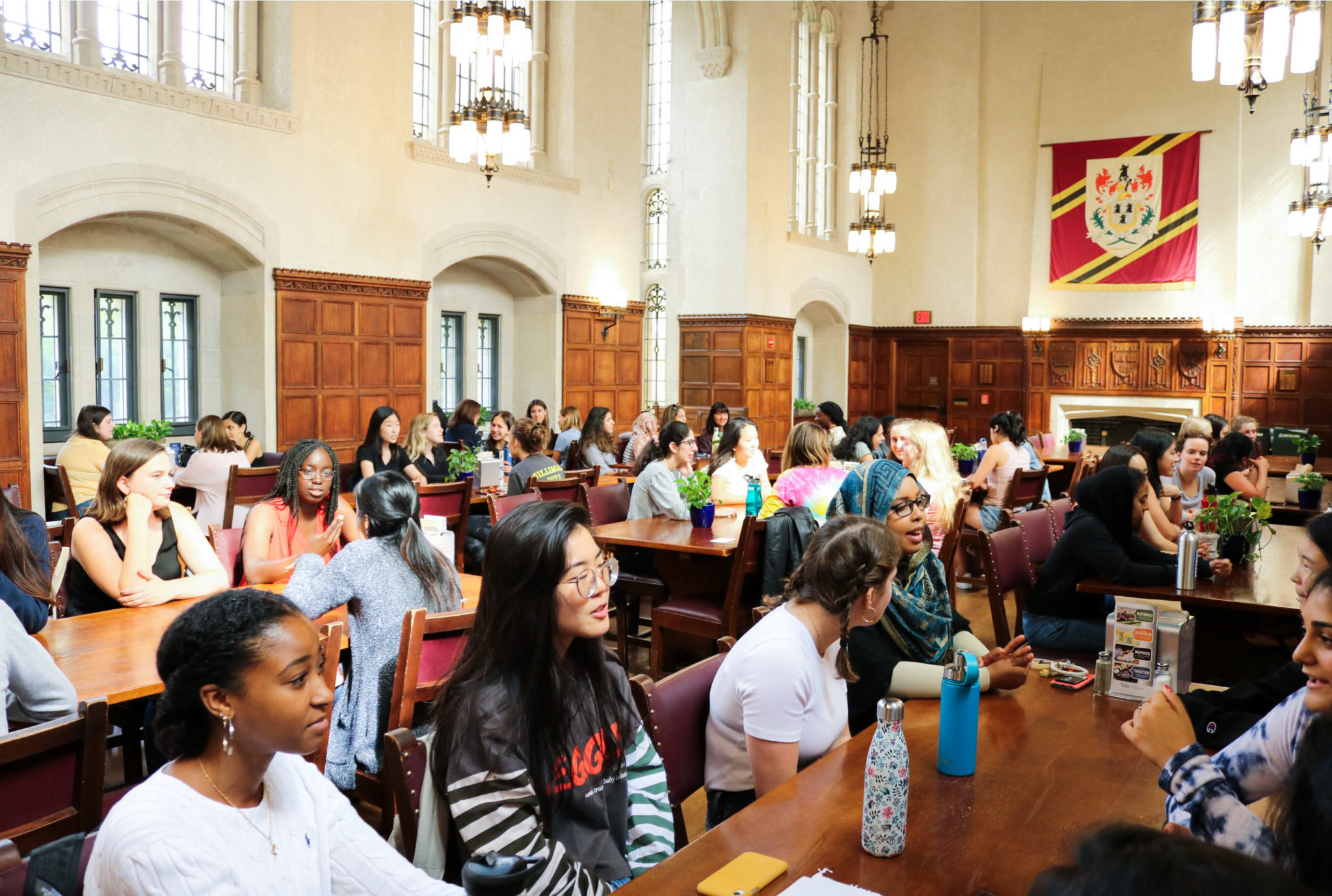
Reilly Johnson
Students launched a new leadership initiative this month designed to connect first-year women and gender minorities with upper-class-level mentors.
The Yale College Council’s Women Affinity Network, in partnership with the Yale Women’s Leadership Initiative, began the project with a speed-mentorship event on Sept. 7. At the event, first years spoke with student leaders on campus. The initiative will soon match students with their mentors for the year.
“We feel that it is critical for first years to have access to a diverse array of mentors and role models that can help them navigate their first year at Yale, empower them to pursue leadership on campus and advise them to tackle the many challenges that manifest along that axis of gender,” Aliesa Bahri ’22, founder of the YCC Women Affinity Network and YCC University services director, said.
Right now, the initiative has more mentors than mentees. Around 50 upper class-level students and 15 first years attended the first event, according to Ananya Kachru ’22, a board member on the Women’s Leadership Initiative. Bahri said that around 100 mentors have already signed up to work with first years.
Kachru said that the initiative’s goal is about 150 mentor-mentee pairings and she is excited by the number of Yale women wanting to “give back and pay it forward” by mentoring first years who just came to Yale.
The mentorship program comes at an important anniversary for gender equality at Yale. This semester marks the 50th anniversary of coeducation at Yale College and the 150th anniversary of female students at the University.
Bahri explained that while the Speed Mentorship event was meant to expose first years to the diversity of women and gender minority student leaders, the rest of the year will focus on matching first years with mentors who have similar interests and availability. Kachru added that the pairs will meet on their own time, but that they plan on hosting larger events related to leadership.
“We saw this as sort of an untapped space,” Kachru said. “Residential colleges have big-sib programs, a lot of clubs and organizations have big-sib programs, cultural centers have [peer liasons]. But we don’t really have one that celebrates women’s leadership on campus.”
Originally, Kachru said, the YCC and Women’s Leadership Initiative independently planned the speed mentorship event and year-long mentorship project. But one day, she and Bahri realized that they should combine their efforts to better legitimize the initiative and “make it more unified campus-wise.” The timing of the initiative was also very fitting, Kachru added, given the year’s significance for women on Yale’s campus.
The YCC Women Affinity Network also came into existence this year. It was the first of YCC President Kahlil Greene’s ‘21 plans to create communities within the YCC to provide support to underrepresented groups within the student government. Greene told the News that he hopes students will create even more affinity networks.
“I’m excited for how [the mentorship initiative] can serve as [a] template for other affinity networks or campus groups, so other people can use the same model,” Greene said. “It’s not confined to one event and other first years [can be] supported in a similar way.”
Bahri said that the initiative was possible due to their many co-sponsors — Yale Undergraduate Women in Economics, Broad Recognition, Circle of Women Yale Chapter, Women in Chemistry, Period @ Yale, Yale Society Women in Engineers, the Yale Undergraduate LGBTQ Cooperative and the Yale Black Women’s Coalition. She emphasized how the event “brought together” many organizations on campus dedicated to empowering women and gender minorities at Yale.
Last year’s YCC Vice President Heidi Dong ’20, who attended the Speed-Mentorship event, said that during her first year, she was “intimidated by Yale’s huge number of opportunities, applications and choices.” She added that she believes it would have been “useful” as a first year to have a similar opportunity to meet and receive advice from upper class-level students.
“I was also amazed by how many upperclassmen volunteered their time to help guide first year students,” Dong said. “It was a really special feeling to be surrounded by such a diverse and talented group of people who had dedicated themselves to helping each other out.”
The School of Fine Arts, which opened in 1869, was the first school at Yale to accept women.
Alayna Lee | alayna.lee@yale.edu







